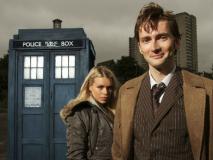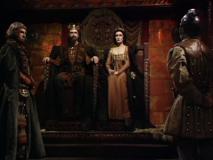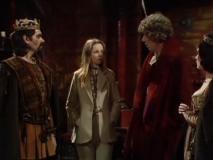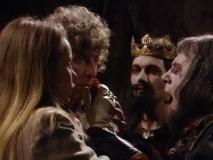An Unearthly Series - The Origins of a TV Legend
Monday, 30 September 2013 - Reported by Anthony Weight

 The twenty-second in our series telling the story of the creation of Doctor Who, from conception to broadcast.
The twenty-second in our series telling the story of the creation of Doctor Who, from conception to broadcast.By the end of September 1963, Doctor Who finally existed as a television programme. After months of meetings, format documents, script development and occasional arguments, a production team was in place, the four leads had been cast, and the début serial had been decided upon as Anthony Coburn's four-parter mainly set in the Stone Age. On Friday 27th September, director Waris Hussein had shot the opening instalment of Coburn's serial at Lime Grove Studios – the very first episode of Doctor Who to be made.
 However, it was an episode that would not be transmitted on British television for another 28 years.
However, it was an episode that would not be transmitted on British television for another 28 years. It had always been part of the plans for the production of the series that the opening episode could, if necessary, be remounted if it was deemed not sufficiently strong for the launch of the new programme. The costs would be met from the BBC Pilot Fund, and the production team would be given the opportunity to have another attempt.
By Monday 30th September 1963 – exactly 50 years ago today – it was clear that this would indeed have to be the case. The BBC’s Head of Drama Sydney Newman, the man who had driven forward the creation of Doctor Who, had viewed the studio recording from Friday evening, and he was not impressed.
Newman’s thoughts on the pilot episode survive in the BBC Written Archives, scribbled down on the back of two pages of script for An Unearthly Child while he viewed the recording. Newman had concerns or observations about many aspects of the production, such as the music, the camera work and the end credits, but his biggest concern – and the aspect that would perhaps show the strongest change between the pilot and the transmitted version of An Unearthly Child – was with William Hartnell’s characterisation of the Doctor.
“Old man – not funny enough,” reads one of Newman’s notes, jotted while the action unfolded in front of him. And again, later – “Old man ain’t cute enough.” Newman decided that the character of the Doctor needed to be softened and made more sympathetic, along with other changes to the episode, and made the decision that producer Verity Lambert, director Hussein, the cast and crew would simply have to try again. As Newman later told Doctor Who Magazine:
That was a dummy run, and it didn’t work out right because Bill Hartnell’s characterisation was a bit too nasty and I thought he would put off the viewers.
More than 40 years after the pilot recording, in the Doctor Who: Origins documentary released on DVD in 2006, Hussein recalled how the news was broken to him and Lambert.
Sydney simply called us in. He called Verity and me in and said “I’ve seen the first episode, I’m going to take you out to lunch,” which he did. Chinese restaurant, I believe, it was in Kensington High Street. Sat us down, and over chop suey told us that he seriously thought of firing both of us! But he said “Look, I believe in both of you, and I’m going to allow you to do it again.” For Sydney to put himself on the line makes him into somebody, as far as I’m concerned, who’s a hero.
Ian Chesterton actor William Russell remembered the events of the pilot’s rejection somewhat differently, telling Doctor Who Magazine that the cast and crew had all been gathered together to watch a showing of the recording, along with Newman:
It wasn’t actually a pilot, it was a first attempt that was not accepted by Sydney. We all trooped into this theatre to see it. He got up at the end and there was this long silence, then he turned to Waris and said “Do it again, Waris!”
Whatever the exact circumstances, what was clear was that work on Doctor Who's first episode would have to start afresh. Incredibly for a series of which 106 transmitted episodes from the 1960s are currently missing, from an era when even broadcast television programmes of high esteem were regarded as ephemeral and disposable, in the late 1970s a 16mm film recording of the complete studio session for the pilot episode was found to exist in the BBC Film Archive. In the early 1990s this session was edited together into a finished episode for the first time, and finally given a television broadcast on BBC2 on Bank Holiday Monday 26th August 1991, as part of a special day of programming called The Lime Grove Story, marking the closure of the studios.
While the first episode would have to be remade and improved, that didn’t mean that work on subsequent episodes had ceased. On the afternoon of Monday 30th September 1963, Lambert held a meeting in her office to discuss the special effects that would be required for the story that had now been promoted to second in the running order for Doctor Who – the post-apocalyptic science-fiction tale written by Terry Nation.
Nation’s serial would ultimately help to cement Doctor Who’s legacy, and ensure the series would still be around and popular 50 years later. However, at this stage there was still no certainty that it would even make the screen. Despite the ambitious plans for a 52-week run, by the end of September the Controller of Programmes for BBC1, Donald Baverstock (as he now was, with BBC2 having its own separate controller in Michael Peacock, despite being some months away from launching), still hadn't guaranteed Doctor Who a run of any more than four episodes.
Doctor Who was at last under way, but its existence was already hanging by a thread.


SOURCES: Doctor Who: Origins, The Beginning, DVD Box Set (BBC Worldwide, 2006); Doctor Who Magazine Special Edition - In Their Own Words, Volume One (Panini Comics, 2006); The Handbook: The First Doctor – The William Hartnell Years: 1963-1966, David J Howe, Mark Stammers, Stephen James Walker (Doctor Who Books, 1994)
 Doctor Who failed to win either of the categories for which it was nominated at the
Doctor Who failed to win either of the categories for which it was nominated at the 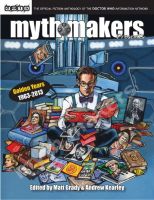

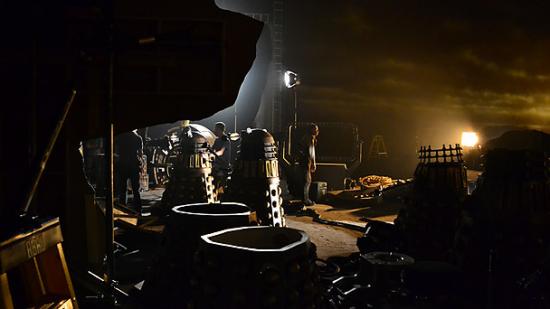

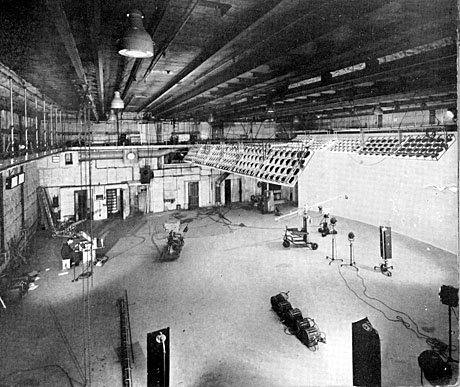 Doctor Who was to be recorded in Studio D at Lime Grove in west London. Opened in 1914 by the Gaumont Film Company, Lime Grove was a film studio converted for television. Bought by the BBC in 1950, it would be home to some of the nation's most-loved programmes for over 40 years.
Doctor Who was to be recorded in Studio D at Lime Grove in west London. Opened in 1914 by the Gaumont Film Company, Lime Grove was a film studio converted for television. Bought by the BBC in 1950, it would be home to some of the nation's most-loved programmes for over 40 years.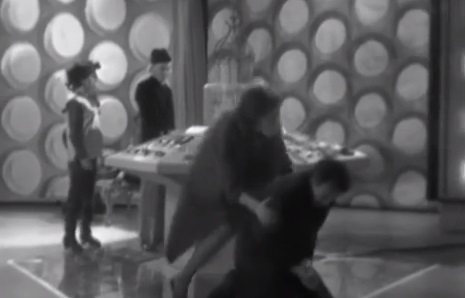 In the studio gallery the vision mixer,
In the studio gallery the vision mixer, 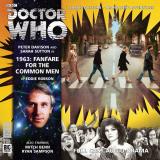
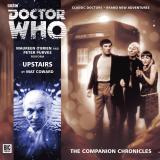
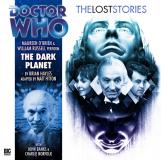
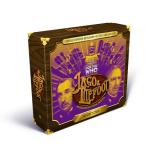
 Extra tickets to the BBC's
Extra tickets to the BBC's 
 October sees the broadcast of nine episodes featuring David Tennant’s Tenth Doctor on Australian and New Zealand television. These screenings are part of the 50th Anniversary season of Doctor Who on the
October sees the broadcast of nine episodes featuring David Tennant’s Tenth Doctor on Australian and New Zealand television. These screenings are part of the 50th Anniversary season of Doctor Who on the 